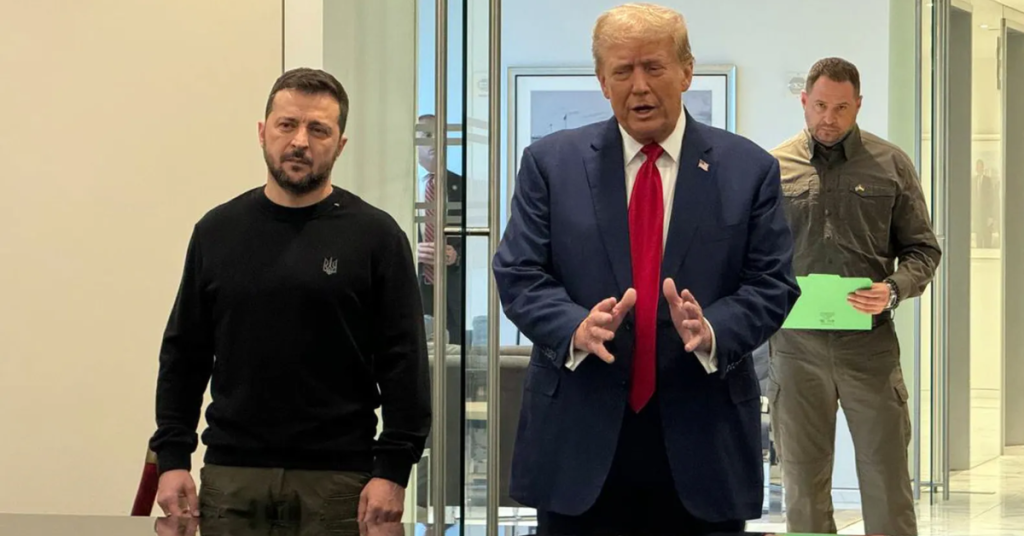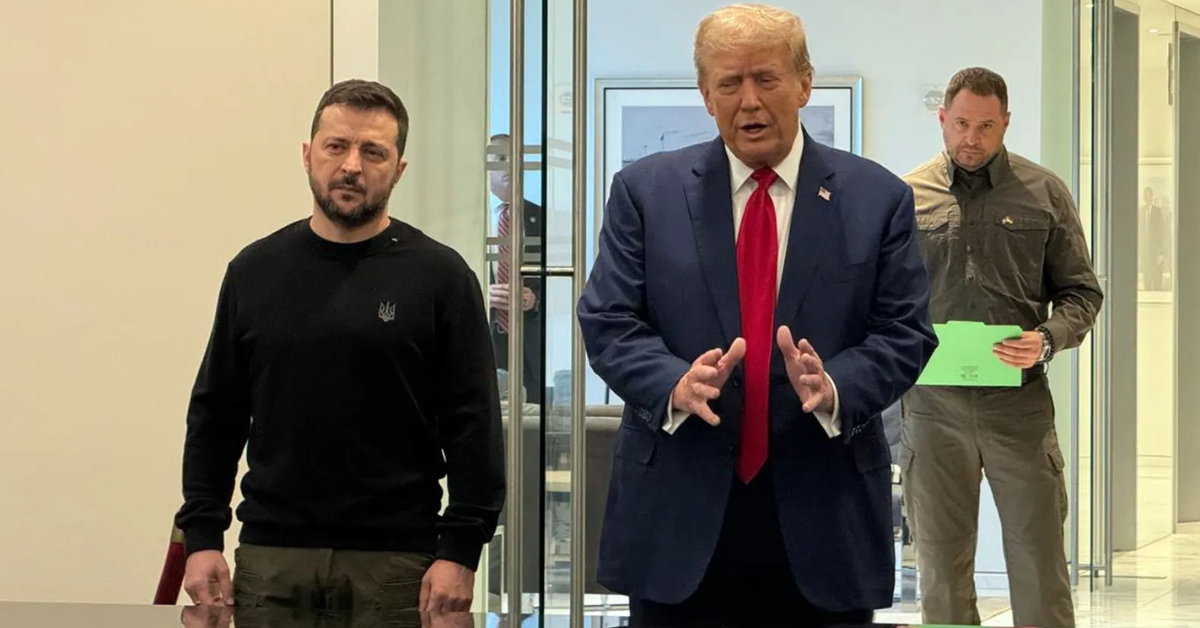The war in Ukraine has been a hot topic in global politics, with many world leaders taking sides and offering support. But among the most interesting shifts in foreign policy has been the change in former President Donald Trump’s stance on Ukraine. On Day 99 of the Russian invasion of Ukraine, Trump seemed to alter his position, sparking debates about his motivations and what this means for the future of international relations.
A Shift in Tone
From the early days of the war, Trump’s response to the conflict was less clear-cut than that of other political figures. While most world leaders, including U.S. President Joe Biden, firmly condemned Russia’s actions and promised significant support for Ukraine, Trump expressed concerns about the U.S. getting too involved.
His tone was often more sympathetic toward Russia, even questioning the effectiveness of sanctions and criticising the West’s handling of the situation. He argued that Europe should assume a larger role in addressing the crisis, rather than relying heavily on U.S. intervention.
However, as the war has dragged on and international support for Ukraine has strengthened, Trump’s rhetoric has evolved. On Day 99, his approach seemed to soften, and he appeared to recognise the growing importance of standing with Ukraine. This marked a notable shift from his earlier remarks, where he had suggested that the U.S. should focus on its interests and avoid being drawn into a conflict that he believed had little bearing on America’s security.
Why the Change?
There are several possible reasons for Trump’s shift in perspective. First, the evolving nature of the war could have influenced his stance. As the conflict has caused widespread devastation and civilian casualties, Trump may have realised the importance of a more supportive position. Ukraine’s continued resistance to Russia, aided by Western arms and sanctions, may also have played a role in reshaping his view.

Another reason for Trump’s shift could be the growing pressure from his political base, which has shown strong support for Ukraine. While Trump initially attracted attention with his “America First” approach, many within the Republican Party now argue that standing against Russia is in America’s best interests. With the war dragging on and increasing international support for Ukraine, Trump’s previous position could have been seen as out of step with the dominant view in the U.S.
Moreover, the U.S. political landscape is highly dynamic. Trump’s evolving stance could be a strategic move to position himself as the candidate who can effectively manage international relations in a way that benefits the U.S. If he is planning to run for president again, aligning himself more closely with the majority view on Ukraine could improve his standing with voters who want the U.S. to be a global leader in confronting aggression and defending democracy.
The Impact of Trump’s Change
While Trump’s policy change is certainly significant, it is essential to recognise that it does not necessarily indicate a complete shift in his foreign policy approach. His prior criticisms of the U.S. involvement in foreign conflicts, including the war in Iraq, have been a defining feature of his political persona. He has consistently emphasised the importance of prioritising American interests, and this principle could still play a central role in his foreign policy if he returns to the White House.
Nonetheless, Trump’s acknowledgement of the importance of supporting Ukraine signals a potential recalibration of his stance on global conflicts. It remains to be seen whether this shift will become permanent or if it is simply a response to changing political dynamics. What is clear is that the war in Ukraine continues to be a pivotal issue for U.S. politicians, and Trump’s evolving position reflects the broader debates happening within American politics about how to deal with Russia.
What Does This Mean for Future Relations?
Trump’s change in tone could have significant implications for U.S.-Ukraine relations in the future. If Trump were to win the presidency again, his approach to the war could differ significantly from his approach during his first term. It’s possible that his policies would shift toward a more diplomatic approach, aiming to negotiate a peace deal or broker talks between Ukraine and Russia.
At the same time, Trump’s foreign policy has always been unpredictable, and it’s unclear exactly how he would handle the situation on the ground in Ukraine. While his critics have warned that he might be too lenient toward Russia, others believe that his business-oriented mindset could lead him to seek an unconventional solution to the crisis, possibly through negotiation or economic sanctions.
Another consideration is the role of NATO in any potential future dealings with Ukraine. Trump has repeatedly criticised NATO during his past term, questioning its relevance and the financial contributions of member countries. If he were to change his stance on Ukraine, likely, his view of NATO would also evolve, potentially leading to more complex negotiations about the alliance’s involvement in the conflict.
The Political Context
Trump’s shift on Ukraine is not occurring in a vacuum. The war has triggered a global response, with countries worldwide choosing sides. The U.S. has been a strong supporter of Ukraine, providing military aid and imposing sanctions on Russia. However, the U.S. political landscape has been volatile, marked by divisions over foreign intervention and international support for Ukraine.
In this context, Trump’s change in tone is a strategic move to align himself with the shifting political dynamics. As the war continues to dominate headlines, Trump’s supporters and detractors will closely watch how he positions himself on this issue in the coming months. His stance on Ukraine could become a key part of his political messaging, particularly as he gears up for the next election.
Conclusion
Trump’s evolving stance on Ukraine reflects the broader changes occurring in U.S. politics and global geopolitics. As the war drags on, it is clear that foreign policy issues, such as those related to Ukraine, will remain at the forefront of political debates.
Trump’s shift in tone is not just about Ukraine; it’s about positioning himself as a leader capable of navigating complex international crises. Whether this change will be lasting or simply a temporary adjustment remains to be seen. Still, it highlights the ongoing impact of the war on political discourse and the future of global relations.
Disclaimer: This article has been meticulously fact-checked by our team to ensure accuracy and uphold transparency. We strive to deliver trustworthy and dependable content to our readers.


